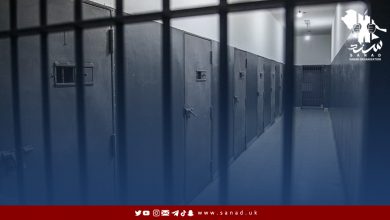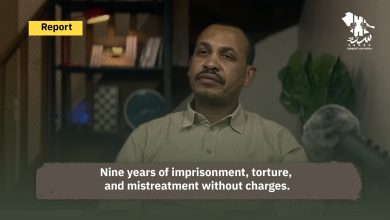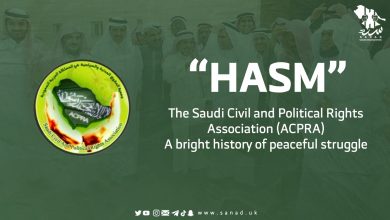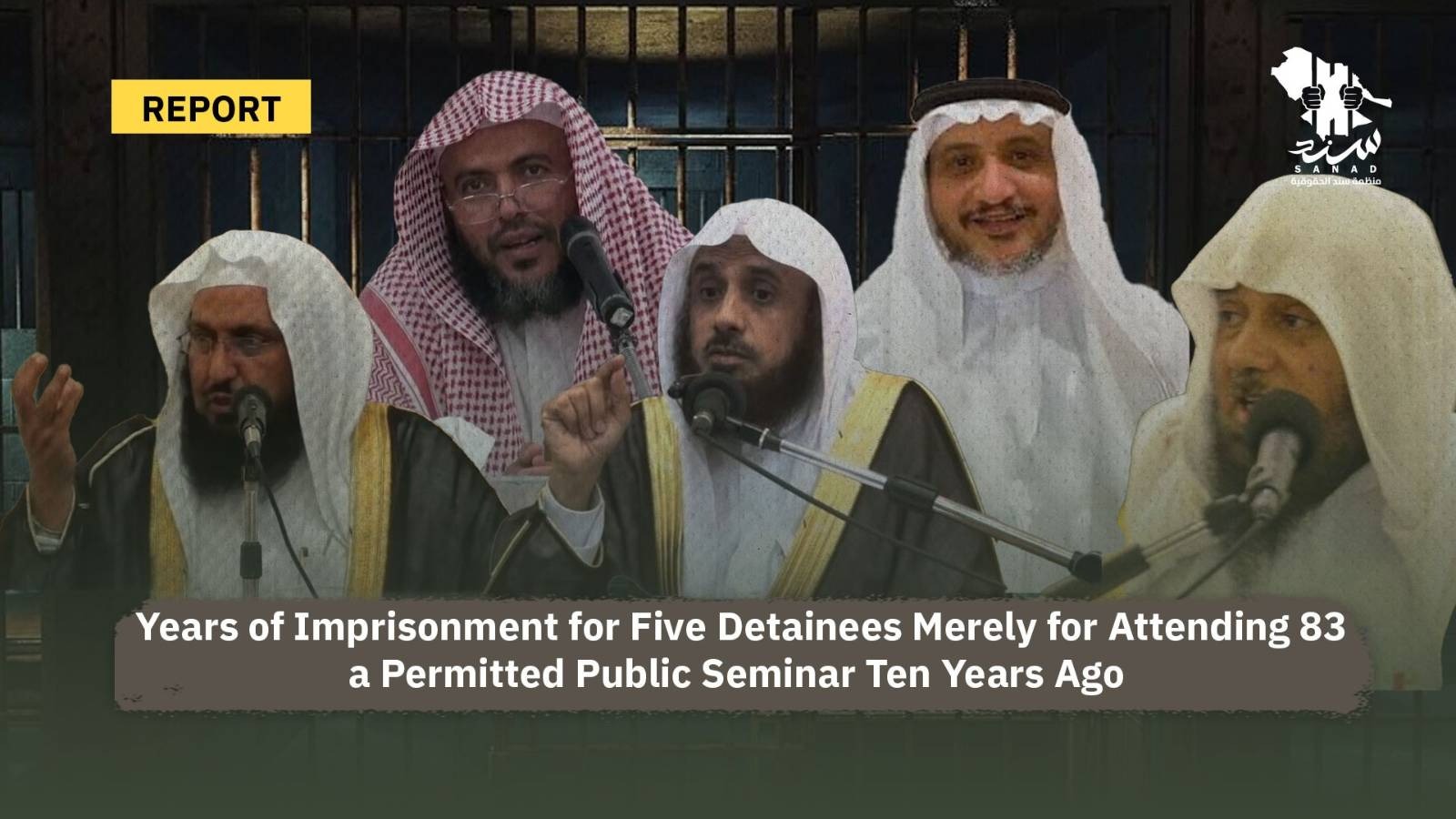
83 Years of Imprisonment for Five Detainees Merely for Attending a Permitted Public Seminar Ten Years Ago
SANAD Human Rights Organization has obtained exclusive and confidential documents regarding the arrest and trial of five prisoners of conscience, who were sentenced to a total of 83 years in prison and given a travel ban for an equivalent period. According to the details, Saudi security forces arrested retired teacher Mohammad Yahya Kadwan and several faculty members from King Khalid University in Abha, including Dr. Mohammad Ali Al-Hazmi, Dr. Ali bin Hassan Al-Almi Asiri, Dr. Rashid bin Hassan bin Mohammad Al-Almi, and Dr. Qasim Mohammad Al-Qathridi in July 2021.
These documents reveal the violations faced by the five detainees, the nature of the unfair show trials they were subjected to, the questionable evidence used to convict them, and the unjust sentences issued against them. The documents also highlight the extent of oppression and injustice they faced, reaffirming the ongoing human rights violations in Saudi Arabia and the increasing level of repression day by day.
Trial Details:
1- Dr. Mohammad Ali Al-Hazmi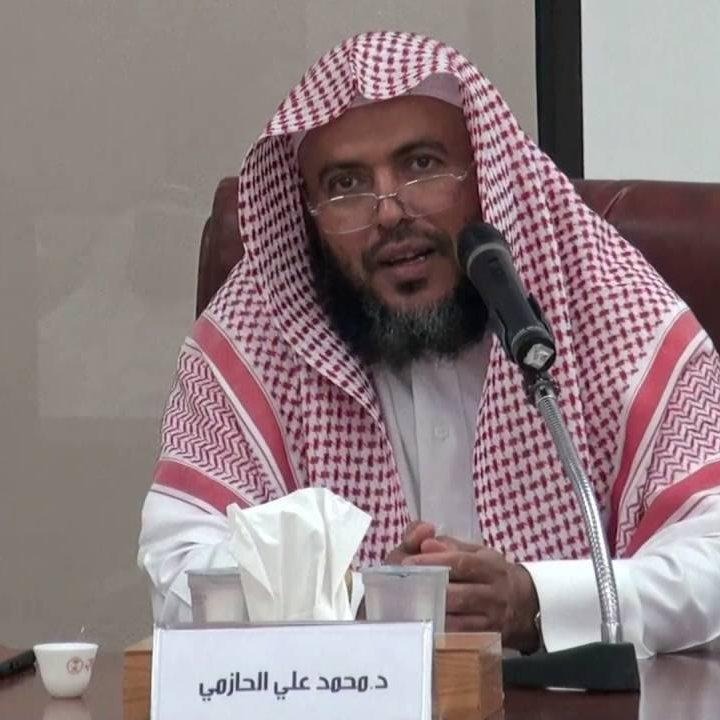
On July 7, 2021, Saudi authorities arrested Dr. Mohammad Ali Al-Hazmi, a professor of Arabic language andliterature at King Khalid University, for attending the seminar titled “Freedom: BetweenSlogan and Reality,” which was presented by Dr. Saud Al-Funaisan at the forum of Dr. Awad Al-Qarni in 2013. In addition to this, several tweets where he expressed his opinion and called for the release of prisoners of conscience, as well as delivering Friday sermons that contradicted the Saudi government’s stance, were cited as reasons for his arrest. It is worth noting that the aforementioned seminar was officially authorized by the relevant authorities in the Asir region.
The public prosecutor, based on these reasons, charged Al-Hazmi with supporting a banned group, attempting to disrupt public order, destabilizing the security of society and the state, and concealing individuals with terrorist ideologies. The prosecution also cited his possession of a book allegedly banned in Saudi Arabia, along with a personal document that contained no criminal content but merely biographical information.
The prosecution demanded the maximum penalty under Articles 55 and 34 of the Anti-Terrorism Law, along with the maximum penalty under Article 6 of the Anti-Cybercrime Law. They also called for his Twitter account to be closed and for him to be sentenced to a severe punitive sentence that would deter others. Additionally, a travel ban was requested to be imposed following the completion of his prison sentence.
In response, Al-Hazmi argued that the tweets attributed to him were from an account that did not belong to him, pointing out that the language used was colloquial and inappropriate for someone of his academic standing as a professor of Arabic. He further stated that he had deleted his account six years before his arrest and that, even if the tweets were accurate, they contained nothing more than prayers for those unjustly imprisoned, without expressing any sympathy for those detained.
Regarding the charge of supporting a banned group and concealing individuals with terrorist ideologies, Al-Hazmi asserted that these accusations were vague and unsupported by evidence. He emphasized that the seminar the prosecution referred to was officially authorized and attended by over 50 prominent figures, who were highly regarded by officials at the time. No accusations were made against any of the attendees. Additionally, the Anti-Terrorism Law was not enacted until five years after the event, making it illegal to apply the law retroactively. This principle is protected under Article 38 of the Basic Law of Governance, which states that “punishment is personal, and no crime or penalty exists except based on a legal or statutory text, and punishment applies only to subsequent acts.”
Al-Hazmi also highlighted that the sermon mentioned by the prosecutor was delivered before the Anti-Terrorism Law came into effect. He was summoned to Asir’s governor’s office and signed a written pledge not to repeat the sermon, and he continued to serve as an imam for three more years afterward. During a meeting with the Deputy Governor for Security Affairs, Al-Hazmi was informed that the case related to the sermon had been closed after the pledge was signed, making the charge baseless.
Regarding the banned book, Al-Hazmi explained that the book had been in his library for 40 years and was publicly sold in bookstores at the time. Furthermore, the list of banned books had never been publicly announced by the Ministry of Information, as per his statement.
Al-Hazmi also revealed to the judge the violent manner in which he was arrested. He was taken into custody at 9 p.m., escorted to his home, which was searched in a brutal manner, in violation of Article 52 of the Saudi Code of Criminal Procedures, which requires searches at night only in cases of necessity. Al-Hazmi was not on the run, and there was no necessity for a night search, yet the court ignored this violation.
Despite the prosecution’s baseless accusations, the Specialized Criminal Court issued a harsh sentence against Dr. Mohammad Al-Hazmi, sentencing him to 23 years in prison and an equivalent travel ban, in addition to permanently deleting his X (formerly Twitter) account, which he had denied any association with. The sentence was handed down under the Anti-Terrorism Law.
This summary provides insight into the ongoing human rights violations in Saudi Arabia, with
individuals being sentenced for attending permitted seminars and expressing their opinions peacefully.
- Mohammad bin Yahya bin Nasser Kadwan
On July 7, 2021, Saudi authorities arrested retired teacher Mohammad Kadwan, in connection with hisattendance at a seminar held at the home of Dr. Awad Al-Qarni more than nine years bef ore his arrest. The seminar, titled “Freedom: Between Slogan and Reality,” was presented by Dr. Saud Al-Funaisan, and Kadwan was also accused of giving a speech at a mosque.
Based on these reasons, the public prosecutor charged Kadwan with supporting terrorist ideologies, concealing individuals with terrorist mindsets who seek to disrupt public order and destabilize the security and stability of the state, and endangering national unity. He was also accused of insulting Islamic scholars. The prosecutor’s case was based on a signed statement from Kadwan, which included only personal information such as his biography and family details, without any mention of a crime or confession, thus rendering the evidence invalid.
The prosecution demanded that Kadwan receive the maximum penalty under Articles 55 and 34 of the Anti-Terrorism Law, as well as a severe discretionary punishment to serve as a deterrent to others. The prosecutor also requested that Kadwan be banned from travel, in accordance with Article 53 of the same law.
The evidence presented by the prosecution referred to the seminar held at Dr. Awad Al-Qarni’s home, which was publicly announced, officially licensed, attended by media representatives, and broadcast through media outlets. The seminar was presented by Dr. Saud Al-Funaisan, who was the Dean of the College of Sharia at Imam Mohammad bin Saud Islamic University at the time.
In his defense, Kadwan stated that he could not be accused of concealing attendees at a seminar broadcast by the media, as all participants were publicly known. Additionally, he noted that he had already been held accountable for the speech he gave at a mosque in Abha, after which he signed a pledge not to repeat such actions, and he was subsequently banned from delivering sermons. Since then, he had refrained from any further activities, focusing on himself and his family. Kadwan also emphasized his strong disdain for extremism, asserting that he had only participated in officially authorized events. Furthermore, he pointed out that a security check conducted prior to his arrest found no issues, and he had never been involved with law enforcement, indicating that he had no connection to terrorism or even minor security issues.
In addition to his arrest, Kadwan was dismissed from his position at the charitable organization in Rijal Alma and his salary was cut off, despite the fact that he supports two wives and several children, with no other source of income for his family.
Despite the invalidity of the prosecution’s claims, the Specialized Criminal Court handed down a harsh sentence against Mohammad Kadwan, sentencing him to 20 years in prison and an equivalent travel ban under the Anti-Terrorism Law.
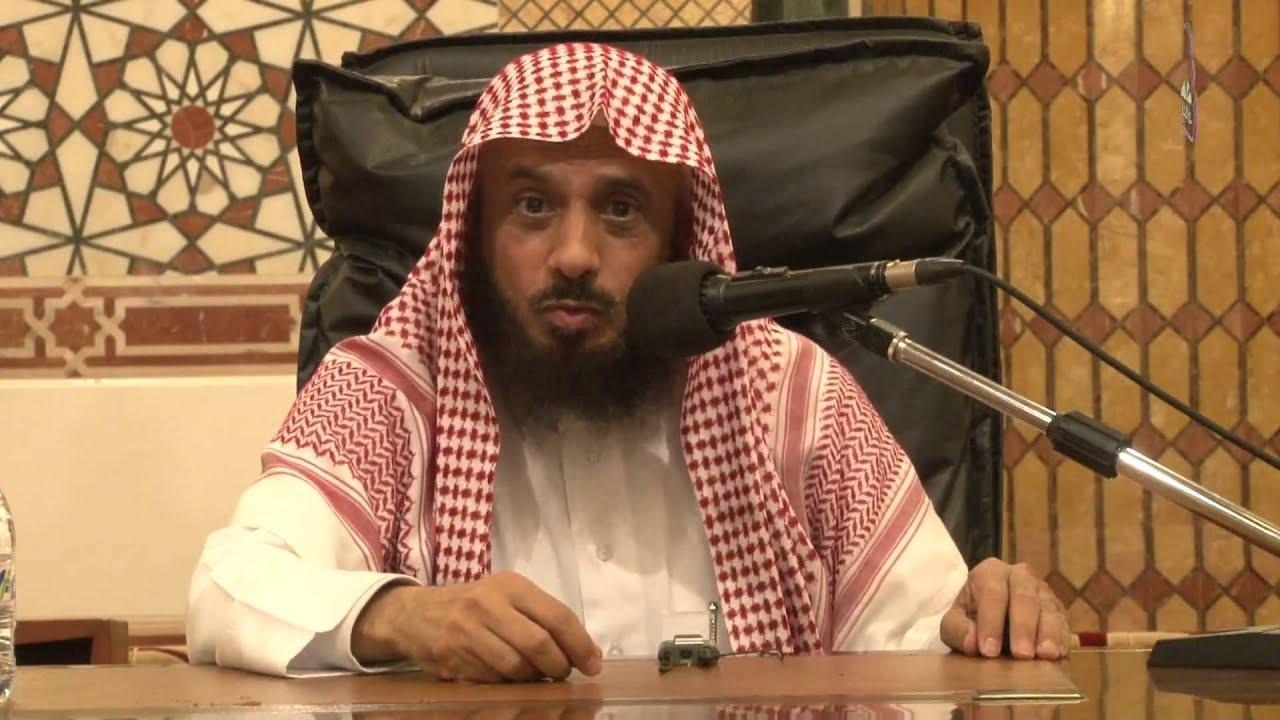 Dr. Ali bin Hassan bin Nasser Asiri
Dr. Ali bin Hassan bin Nasser Asiri
On July 8, 2021, Saudi authorities arrested Dr. Ali bin Hassan Asiri, an assistant professor at King KhalidUniversity, for attending the seminar titled “Freedom: Between
Slogan and Reality,” presented by Dr. Saud Al-Funaisan at Dr. Awad Al-Qarni’s home. He was also accused of hosting a banquet for Dr. Al-Funaisan at his residence and tweeting in support of the release of prisoners of conscience, as well as possessing two books deemed prohibited by Saudi authorities.
As a result, the public prosecutor charged Dr. Ali Asiri with supporting terrorist ideology, endorsing a banned group, and possessing publications that contained symbols and ideas of this group with the intent of promoting it. He was also charged with concealing individuals with terrorist ideologies who sought to disrupt societal cohesion and endanger national unity, without notifying the relevant authorities. Additionally, he was accused of attempting to disrupt public order, destabilize society, and endanger national unity through his participation in the seminar and his tweets advocating for the release of prisoners of conscience.
Based on these allegations, the prosecution demanded the maximum penalty under Articles 55, 34, and 43 of the Anti-Terrorism Law, as well as the maximum penalty under Article 6 of the Anti-Cybercrime Law, including imprisonment and a fine. They also called for the confiscation of his mobile phone, the cancellation of his SIM card, the deletion of his Twitter account, and a severe discretionary punishment that would serve as a deterrent to others. Additionally, a travel ban was requested to be imposed following the completion of his prison sentence.
The public prosecutor’s evidence included a signed statement from Dr. Asiri, which he explained contained only personal and family information and did not confess to any crime. Dr. Asiri, who is in his seventies, emphasized that he had never been questioned or detained for any security issue prior to this case.
Regarding the accusations and evidence presented by the prosecution, Dr. Asiri explained that the seminar was the same one that led to the arrests of Kadwan and Al-Hazmi, and that nothing new was presented beyond what had been mentioned before. He stated that he had remained silent throughout the seminar, neither supporting nor opposing any views, and denied any affiliation with terrorist groups. As for the books in his library, he clarified that they were acquired as part of his research as a professor of Islamic creed, as it is necessary to study all schools of thought in the field of religious research.
Despite the lack of credible evidence, the Specialized Criminal Court issued a harsh sentence against Dr. Ali Asiri, sentencing him to 23 years in prison and an equivalent travel ban, as well as confiscating his mobile phone and permanently deleting his X (formerly Twitter) account, under the Anti-Terrorism Law.
- Dr. Rashid bin Hassan bin Mohammad bin Ali Hassan
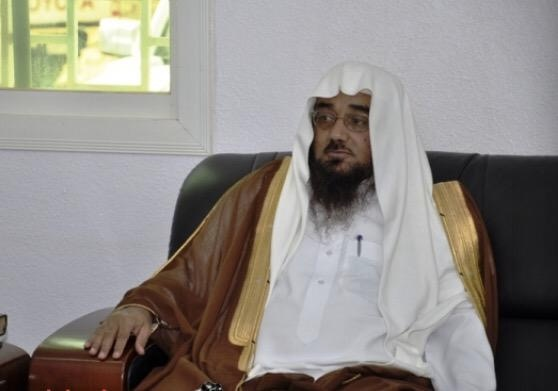
Saudi authorities arrested Dr. Rashid bin Hassan, a professor at King Khalid University in Abha, on July 8, 2021, for attending an officially permitted seminar titled “Freedom: Between Slogan and Reality,” presented by Dr. Saud Al-Funaisan at Dr. Awad Al-Qarni’s home nine years before his arrest. He was also accused of possessing the book “From the Guidance of Islam: Contemporary Fatwas.”
The public prosecutor charged Dr. Rashid with supporting terrorist ideology, concealing individuals with terrorist ideologies, and seeking to disrupt public order, destabilize society, and endanger the state’s unity.
The prosecution demanded the maximum penalty under Articles 55 and 34 of the Anti-Terrorism Law, a severe discretionary punishment, the confiscation of the book found in his possession, and a travel ban after the completion of his prison sentence.
In his defense, Dr. Rashid stated that the court disregarded the statements of the detainees and that the charges brought against him were vague and lacked evidence. He argued that he had no knowledge of anyone at the seminar being detained or holding terrorist ideologies, as claimed by the authorities. He further emphasized that he had no involvement in selecting the guest speaker or the topic of the seminar, nor was he aware of the content beforehand. Moreover, he did not express any opinions during the seminar and remained silent throughout.
Regarding the book found in his possession, Dr. Rashid explained that he had acquired it when its author visited Saudi Arabia to receive the King Faisal International Prize for Islamic Studies. The book is a religious text with no connection to terrorist ideologies, and owning it does not imply agreement with the author’s views. He also highlighted that the author had been recognized by Saudi authorities; otherwise, he would not have received the prestigious award.
Dr. Rashid requested a suspension of his prison sentence and temporary release due to a severe chronic neurological condition, which was documented by medical reports. He stated that his health was deteriorating daily, but the judge ignored his plea and rejected his request.
Despite the baselessness of the prosecution’s claims, the Specialized Criminal Court handed down a harsh sentence, sentencing Dr. Rashid bin Hassan to 9 years in prison and an equivalent travel ban under the Anti-Terrorism Law.
- Dr. Qasim bin Ahmad bin Abdullah Al-Qathridi
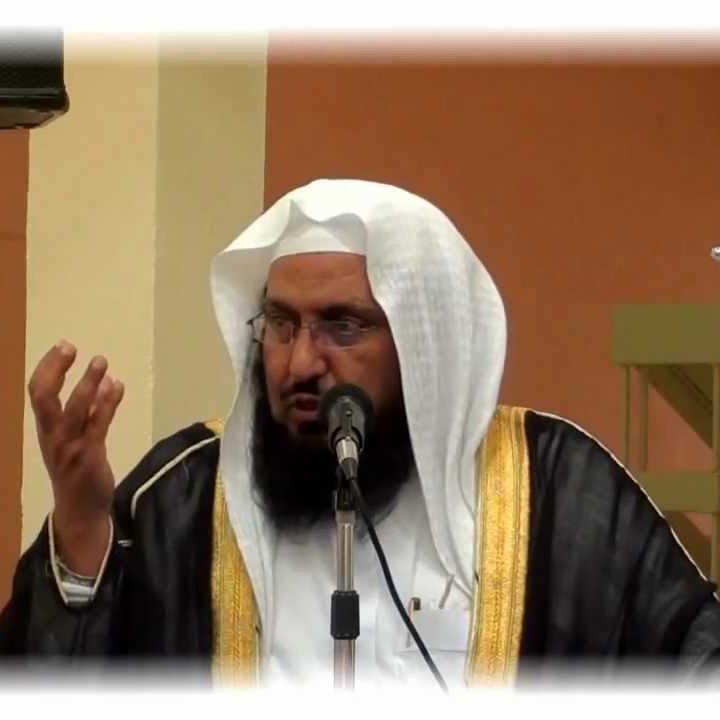
On July 8, 2021, Saudi authorities arrested Dr. Qasim Al-Qathridi, a retired professor from King Khalid University in Abha, for attending the same gathering that led to the arrest of others. He was also accused of possessing two books: “Hatta La Takun Fitna” (Lest There Be Discord) by Ghazi Al-Gosaibi, and “Existentialism.”
Based on this, Saudi authorities charged Dr. Al-Qathridi with supporting terrorist ideologies and concealing individuals with these ideologies. He was also accused of meeting with those who seek to disrupt public order, destabilize society, and endanger national unity. The public prosecutor argued that his possession of the books “Hatta La Takun Fitna” and “Existentialism” was an attempt to undermine social cohesion and national unity.
The prosecutor demanded that Dr. Al-Qathridi receive the maximum penalty under Articles 55 and 34 of the Anti-Terrorism Law, as well as a severe discretionary punishment. They also called for the confiscation of the two books and a travel ban following the completion of his prison sentence.
In his defense, Dr. Al-Qathridi denied supporting any terrorist ideology or group. He emphasized that the seminar he attended occurred before the Anti-Terrorism Law was enacted, a fact repeated by all the other detainees. He also denied the prosecution’s claim that he had confessed to the charges during the investigation.
Regarding the possession of the two allegedly banned books, Dr. Al-Qathridi stated that the books were not banned but freely sold in public bookstores. Moreover, possessing a book does not necessarily imply agreement with the author’s views. He noted that “Hatta La Takun Fitna” was written by Ghazi Al-Gosaibi, who had held numerous government positions, while the “Existentialism” book was a philosophical text taught in university departments of Islamic Creed and Contemporary Thought.
Dr. Al-Qathridi requested temporary release due to his advanced age and the large family he supports, and expressed his willingness to pay any bail set by the court. However, the judge rejected his request.
Despite the baselessness of the prosecution’s claims, the Specialized Criminal Court sentenced Dr. Qasim Al-Qathridi to 8 years in prison and an equivalent travel ban under the Anti-Terrorism Law.
Unjust Sentences
Although the signed statements presented by the prosecution contained only biographical information and personal details, with no admissions of guilt or involvement in any crime, the Specialized Criminal Court considered these as valid evidence in issuing harsh sentences against the detainees. The court also reiterated unsupported accusations made by the prosecution.
It is important to note that all the evidence used by the court was based on events that occurred before the enactment of any of the legal provisions cited in the sentencing. The sentences were issued as follows:
- Dr. Mohammad Al-Hazmi was sentenced to 23 years in prison, with an equivalent travel ban, and his X (formerly Twitter) account was permanently deleted, despite his denial of any connection to the account. This sentence was issued under the Anti-Terrorism Law.
- Mohammad Kadwan was sentenced to 20 years in prison and given an equivalent travel ban under the Anti-Terrorism Law.
- Dr. Ali Asiri was sentenced to 23 years in prison, with an equivalent travel ban, and his phone was confiscated, and his X account was permanently deleted under the Anti-Terrorism Law.
- Dr. Rashid bin Hassan Asiri was sentenced to 9 years in prison and an equivalent travel ban under the Anti-Terrorism Law.
- Dr. Qasim Al-Qathridi was sentenced to 8 years in prison, with an equivalent travel ban under the Anti-Terrorism Law.
The detainees were tried in the First Triple Chamber of the Specialized Criminal Court. The judges who presided over the sessions before issuing the sentences were Judge Badr bin Abdullah Al-Rais, Judge Naif bin Fahd Al-Jarallah, Judge Dhayfallah bin Abdul Majeed Al-Salmi, and Judge Abdulaziz bin Safar Al-Adiyani. In the final session, the sentence was issued by Judge Naif bin Fahd Al-Jarallah, head of the chamber, with the participation of Judge Abdullah bin Hamoud Al-Marzouqi and Judge Tariq bin Ibrahim Al-Hazani.
The public prosecutors representing the case were Tariq bin Ibrahim Al-Hazani, Faris bin Mohammad Al-Omari, and Turki Hawizi Al-Qahtani. The final judgment was issued in the presence of the lead prosecutor, Khaled bin Abdullah Al-Muqrin.
A significant legal irregularity that further underscores the farcical nature of the Saudi judiciary was the involvement of Tariq bin Ibrahim Al-Hazani, who participated in the first trial session as a prosecutor and later, in the final session, as a judge in the panel that sentenced the detainees.
The detainees have been held in Abha’s General Intelligence Prison since their arrest in July 2021. Dr. Awad Al-Qarni, in whose home the seminar was held, has been detained since September 2017, and the public prosecutor is seeking his execution. On the other hand, Dr. Saud Al-Funaisan, who delivered the seminar, was released after serving his sentence in November 2023, following more than three and a half years in detention.
Conclusion
The arrests and unjust trials of these academics and intellectuals reflect the painful reality of freedom of expression and human rights in Saudi Arabia. The fabricated charges and harsh sentences demonstrate a systematic approach to suppressing independent and dissenting voices, undermining the principles of justice and the rule of law.
SANAD Human Rights Organization calls for immediate action to stop these violations by demanding the unconditional and immediate release of all those mentioned in this report, as the charges against them do not warrant imprisonment, let alone prosecution. The organization also urges the international community and human rights organizations to apply pressure on Saudi authorities to halt these arbitrary practices and to ensure individuals’ rights to express their opinions without fear of retaliation.



